Hello, and happy Book Review day! Today’s reviews include three of summer’s most-buzzed novels as well as two nonfiction titles I adored. Let’s get right to the reviews!
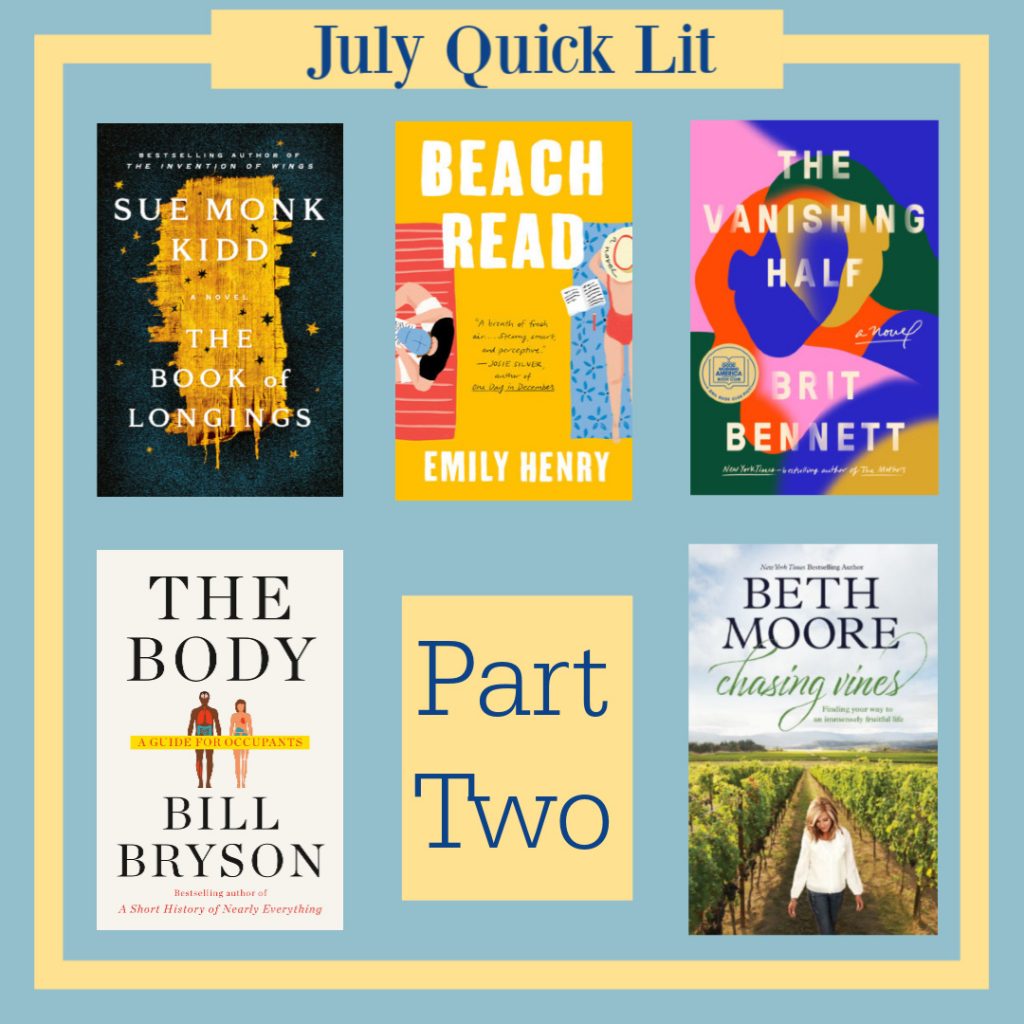
The Vanishing Half, by Brit Bennett: Identical twin sisters Stella and Desiree Vignes grew up in the southern black community of Mallard, a town of men “who would never be accepted as white but refused to be treated as Negroes.” With their fair skin, the Vignes sisters had fit right in with this community that values lightness, yet they chose to escape at the first chance they got, running away at just sixteen years old.
Ten years later, in 1968, Desiree returns to Mallard with her black daughter, Jude, and attempts to reestablish herself in the town where she is no longer entirely welcome. Meanwhile, Stella has left Mallard for good: having married a wealthy white man, she is now the mother to a blond-haired daughter and is passing as a white woman in her new home of Los Angeles.
In this story that spans four decades, we follow the trajectories of Stella, Desiree, and their daughters, and through their stories we get an eye-opening glimpse at the history of racism, colorism, and passing. Whereas Desiree cannot deny that she is black, Stella has begun to believe her own lie that she is white, and we see how these self- and society-imposed beliefs manifest themselves in the attitudes and experiences of each woman and her offspring. Desiree and Stella force readers to examine our own biases as we see that race and identity truly are superficial constructs that are more deeply ingrained than any of us realize.
This is a poignant and timely novel that grapples with heavy themes, going beyond the more obvious subject of race to explore family dynamics, identity, motivations, societal and personal expectations, and cultural norms. While the novel is issues-driven, the characters are fully developed and their stories are heart-wrenchingly believable and engrossing, breathing life into often-discussed concepts that are at once unique and universal. Bennett’s prose is mesmerizing—intimate, insightful, and subtle, yet loaded with meaning.
This would have been a five-star read for me, if it weren’t for the inclusion of a transgender character whose story introduces a prominent theme of gender identity into an already densely-themed novel. I understand Bennett’s desire to draw parallels between racial and gender identities and associated expectations, but I felt this anachronistic storyline detracted from the more prominent themes without contributing to the overall plot in any meaningful ways. I also did not care for the abrupt, inconclusive ending.
The Vanishing Half is a rare novel that lives up to the hype. It is a beautiful story, well-told, that has given me a new framework for understanding race and racism in America. It is a challenging read, but definitely worth the effort.
My Rating: 4.5 Stars. (Rounded down to 4 stars on Goodreads.)
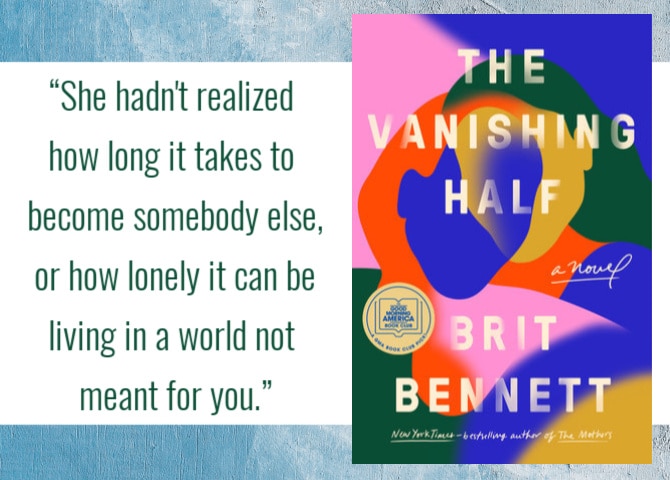
The Body: A Guide for Occupants, by Bill Bryson: Bodies. Every one of us has one, yet most of us are woefully ignorant of the capabilities, functions, and frailties of our own anatomy. As Bill Bryson writes, “We pass our existence within this warm wobble of flesh and yet take it almost entirely for granted.” In this book, Bryson guides his readers in developing a deeper understanding of—and hopefully a greater appreciation for—the form of our existence. The book offers deep-dives into various parts of the body, from skin and hair to lungs and guts and everything in between. We are also given chapters on some of the more complex intricacies of human functioning, such as sleep, disease, and death.
The book summary makes this sound like a tedious anatomy textbook, but it is FAR from dry reading. Bryson’s writing is humorous and easy to follow, filled with fascinating anatomy and physiology facts—some that I was shocked that I didn’t already know, and others that I couldn’t have imagined in my craziest of dreams. My favorite sections were those on the brain (I’m a sucker for brain science) and disease (especially relevant these days), but I had amazing takeaways in every chapter. Bryson provides historical context and expert interviews, as well as biographical information about pertinent medical experts and scientists. He also dispels common myths, replacing them with facts that are even stranger and more astounding than their fictional assumptions.
The book is written from the perspective of an evolutionist, but I would find it difficult to deny the existence of a divine Creator after reading this account of the true miracle that is the human form. The Body served to enhance my profound appreciation for the miracle and sanctity of life and for the Author of life itself.
If you have the slightest interest in biology, enjoy reading counterintuitive facts, or appreciate the intersection of history and science, you will love this book.
My Rating: 5 Stars.
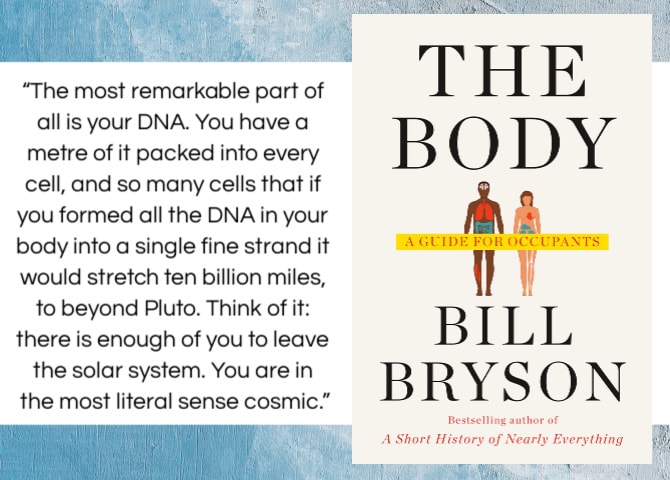
Beach Read, by Emily Henry: A year ago, January Andrews was a happily engaged romance novelist whose success lay in her genuine belief in love—a belief grounded in her parents’ long-lasting love story. But when January’s father passes away and her own engagement falls apart, January’s romantic faith vanishes, as does her ability to write about romance. January escapes to a beach house in an attempt to break through her writer’s block and meet a deadline.
At the house (her father’s former love shack), January discovers that the crotchety man living next-door is also a novelist: acclaimed fiction writer (and January’s polar opposite), Augustus Everett. In order to write their way out of their mutual creative ruts, Augustus and January commit to a unique challenge: Augustus will attempt to pen a romance, while January will write the next Great American Novel. And of course, this wouldn’t be a romantic comedy if the summer didn’t find the two protagonists hating their way into romance.
I loved the cute setup of this book, especially the writerly elements. (It was fun to read the author’s note at the end about the portions of the story that were autobiographical). I also appreciated the more complex themes of grief and disillusionment explored through January’s realizations about her father and reflections back on their parent/child dynamic. Augustus too is an intriguing character facing some interesting relationship challenges. That said, I didn’t love the romance element of this book, which felt contrived and was built upon some deeply unhealthy attitudes and behaviors. I also struggle with books that glamorize or condone failed marriages, which this book does more than once.
If you’re looking for a funny, slightly literary romance with strong summer vibes, you’ll likely enjoy this, but I didn’t find it to be the must-read that many others have proclaimed it to be.
My Rating: 3.5 Stars. (Rounded down to 3 stars on Goodreads.)
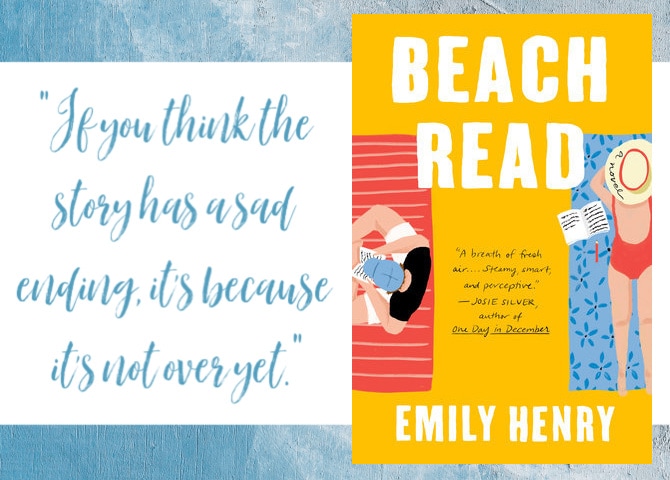
The Book of Longings, by Sue Monk Kidd: Little is known about Jesus from the years between his birth and the start of his ministry at age 30. This provocative novel reimagines those lost years from the perspective of someone who would have known him well. . . his wife.
Ana is a rebellious young woman whose upbringing in a wealthy family in Galilee have enabled her to be a writer and a scholar. Her status does not exempt her from marriage, however, and Ana narrowly escapes a wedding to an elderly widower when her husband-to-be passes away during their betrothal. Following his death, Ana longs for nothing more than to remain single. That changes when she has a chance encounter with 18-year-old Jesus, a kind and passionate carpenter’s son with whom she agrees to share her life.
The shocking premise of this novel nearly kept me away, but many wonderful reviews piqued my interest enough to give the book a chance. The Book of Longings focuses on the historical Jesus rather than the Biblical Messiah, and read with the assumption that this is entirely fictional, I was able to appreciate the storytelling and compelling characters. I was intrigued by the ways in which Monk weaves Biblical history into the story with cameos from many of Jesus’ followers (most notable is Judas, who happens to be Ana’s brother). I found it interesting to read Monk’s exploration of the start of Jesus’ ministry and his budding awareness of—and relationship to—God the Father.
While I don’t believe Jesus was married, Monk’s explanations for how he could have been—and how or why his wife’s story wouldn’t be included in the Gospels—is certainly compelling. I really appreciated the author’s note at the end of the book, which explains Monk’s reasons for certain creative decisions. This commentary helped me to get on board with the book’s examination of Jesus’ humanity and not his deity. (I only wish this note had been at the beginning and not the end of the book, as it would likely have set me up to enjoy/appreciate the novel even more.)
The Book of Longings reminded me quite a bit of The Red Tent, but I found Longings to be much better written, and the sacrilegious aspect bothered me less here because I was expecting it going in (whereas I picked up The Red Tent anticipating a work of Christian Fiction). While this is clearly not a Christian book, the content is clean, with no language or open-door romance.
This novel isn’t for the faint of heart, but if you are a fan of historical fiction and are willing to suspend disbelief for the sake of an engrossing, richly imagined story set in Biblical times, you’ll enjoy this.
My Rating: 3.5 Stars. (Rounded up to 4 stars on Goodreads.)
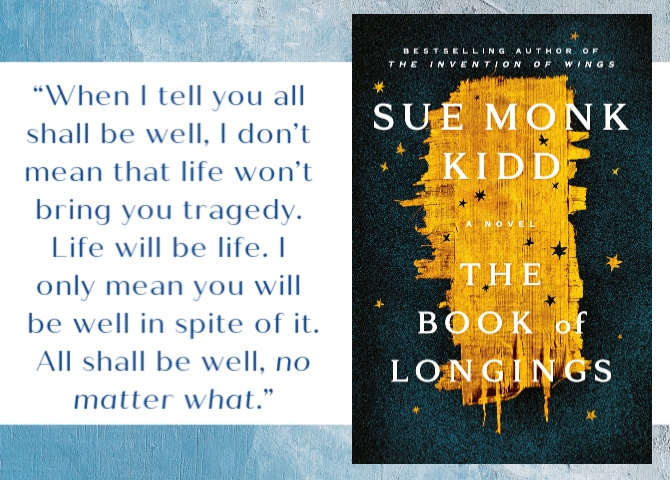
Chasing Vines: Finding Your Way to an Immensely Fruitful Life, by Beth Moore: From Genesis through Revelation, the vineyard is a prominent metaphor of scripture. In this intriguing book, Beth Moore explores the connection between faith and the vine. Beth walks us through the various aspects of viticulture, from the vineyard and vinedresser to the vine and the fruit, drawing parallels to our Christian life in much the same way that Jesus did in His parables. Through in-depth analysis and her own personal stories, Beth reveals the abundantly fruitful life in store for those who abide in Christ, subjecting ourselves to the rocky soil in which we have been planted and opening our hearts to painful but necessary pruning by our divine Vinedresser.
The premise of this book is fantastic. I love how Beth brings the language and culture of the vine (which would have been familiar for Biblical audiences) to life for the modern reader. Though I’ve studied many vine-related passages in the past, these metaphors were never quite so vivid to me, and Beth won me over in her enthusiasm for the common grape. The book contained several amazing “aha” moments for me, while also helping solidify or understand previously held truths. I also really enjoyed the blend of conversational tone and beautiful, flowery language; I had no idea Beth Moore could write so poetically. My only frustration with the book was her occasional overuse of metaphor to the point of being cryptic; in some sections I had to read between the lines to understand the points she was trying to make, and I would have preferred for her conclusions to be a little more clear.
This is a rare Christian living book that could be appreciated by seasoned believers as well as by those new to the faith, as there are lessons in it for all of us. I so appreciate Beth Moore’s exuberant faith and passion for her subject.
My Rating: 4.5 Stars. (Rounded up to 5 stars on Goodreads.)
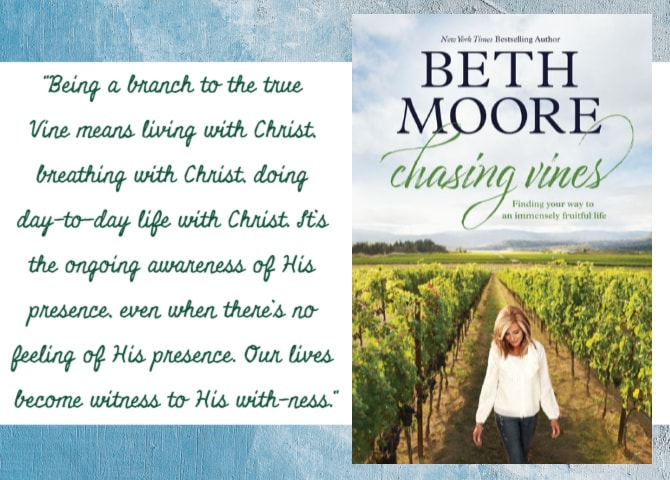
I’m linking up with Modern Mrs. Darcy to share what we’ve been reading. If you’re here from the link-up, thanks so much for stopping by! I hope you will check out part one of this month’s book reviews here.
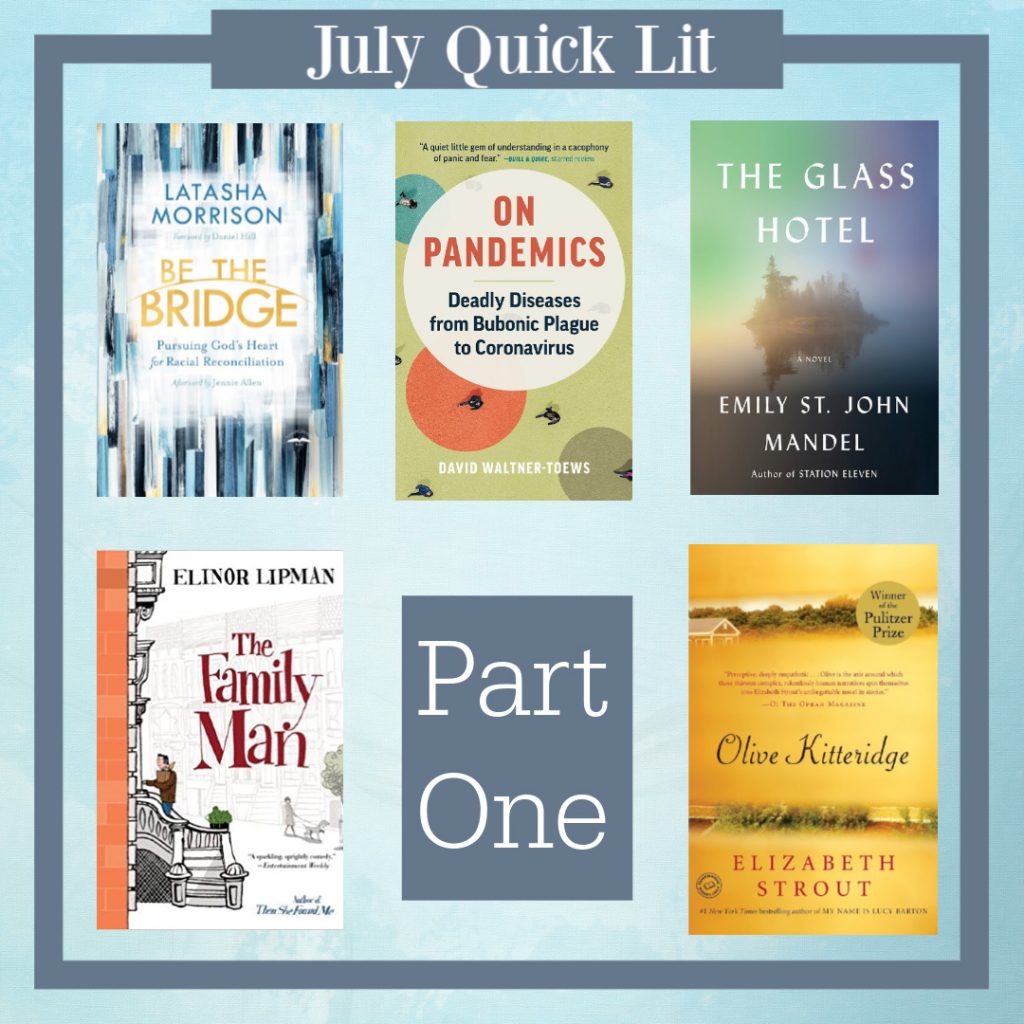
And check back here next Wednesday for the rest of this month’s reviews.
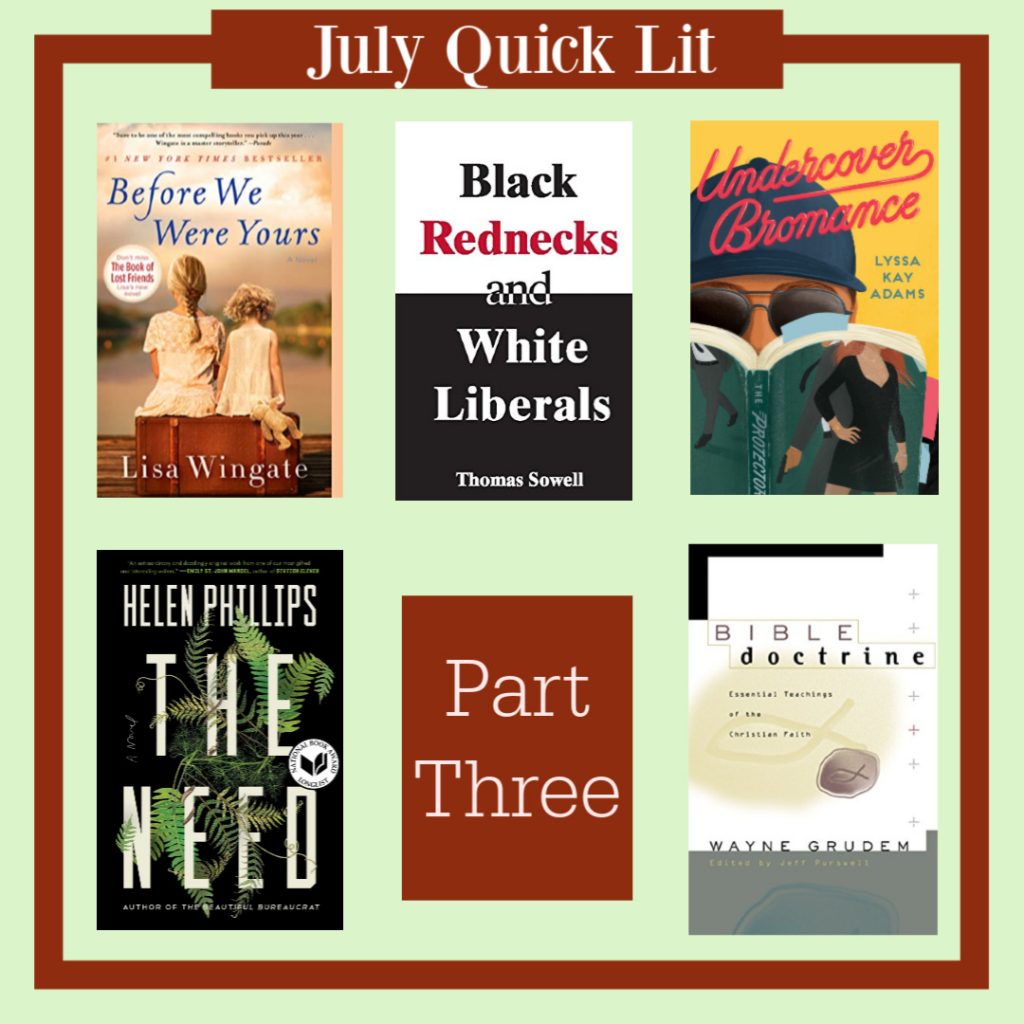
What is the best (or worst) book you’ve read this month? I’d love to hear about it!
You have read a doozy this month! If you ever do any of Beth Moore’s bible studies (with the video’s) you’ll see how poetic she is. She is very clever with words. I’m glad you liked Chasing Vines as it is on my TBR and I’ve had mixed feelings of her other books. However, all her bible studies are superb. I, too, am intrigued by The Book of Longings and now that you’ve reviewed it I am adding it to my book club selections. As always, I enjoy your reviews immensely. I find more books to read – and enjoy from here.
Thanks so much Susan for the encouragement! You will have to let me know what you think of Book of Longings. I’m interested now in reading more from Beth, I know so many women who love her studies but I had never really been drawn to them before. I might also need to check out her novel.
I just have less than 100 pages to go in The Book of Longings. I have to keep telling myself, this is Ana’s story and she just happens to be married to Jesus. When I put the focus on her I can let go of the idea of Jesus having a wife and rolling with the story. It was our book club pick and we will be discussing on Friday and I can’t wait.
Such a great book club choice, it has so much to discuss!
The Book of Longings is sitting on my shelf – I’m definitely curious about it as I keep seeing so many opinions, especially as I’ve never identified or belonged to the Christian religion so I’m curious how that will play into my thoughts on the book.
I agree about Beach Read – it was fun but I wish I hadn’t known that so many other people thought it was different because I might have had entirely different views about the book if not for that type of ‘spoiler’
It’s so fun to see all the books that MMD fans are reading – Here’s what my family and I have been reading this month – https://www.everyoneslibrarian.com/blog/quick-lit-july-2020
I’m glad I’m not alone on Beach Read. Hmm, it’s so interesting to think about reading Longings it bout having a Christian background. I wonder if you will like it more or less….
I always look forward to your Quicklit reviews. I am so on the fence about Sue Monk Kidd’s book. She is a great writer but I’m not sure I can suspend my thoughts about Jesus being married enough to enjoy the book. I don’t know.
Thank you! If you are on the fence, I would skip it. I found it intriguing but not outstanding; there are plenty of other books out there that you WILL enjoy!
I found your blog because of modernmrsdarcy.com and I’m so glad I did! I really enjoy your book reviews. Thank you. 🙂
Thanks Danielle!
I like how you share a quote from each book. Thanks for sharing!